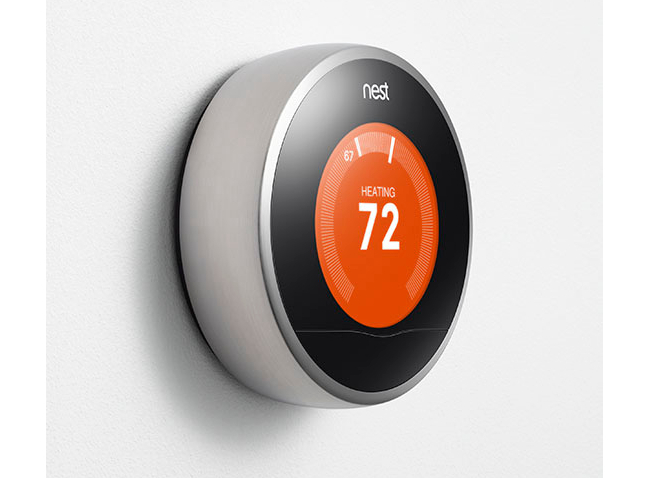HP EliteBook Revolve
In our last week in gadgets of the year, we take a look at gadget happenings as HP introduces its ninth-generation convertible tablet, a smart thermostat learns how to regulate energy in your home, and IBM scientists give us their predictions for computing in the near future.
HP EliteBook Revolve
HP’s new convertible business tablet, which will be available in March next year, folds and swivels for use as a tablet or a laptop. The ultrathin 1.4kg device comes with third-generation Intel Core processors and either Windows7 Pro or Windows 8 Pro. The 11.6-inch HD display adjusts its orientation and brightness automatically in response to its position, while a full-sized backlit keyboard and optional stylus provide alternative input modes to the touchscreen.
The EliteBook Revolve also comes with a 720p HD4 camera, dual microphone array, secure NFC, and SSD up to 256GB. It’s 3G ready for working on the move and the magnesium chassis and Corning Gorilla Glass 2 screen ensure its durability in transit.
Nest Learning Thermostat
Winning all sorts of gadget of the year accolades for 2012, the Nest Learning Thermostat not only lets users remotely programme their home heating, it also learns from them and optimises their usage accordingly. The device learns its users’ schedule, switching off the heating when the house is empty and heating up before you wake or arrive home.
A monthly energy usage report is also sent to users by email, providing them with a summary of their energy use and more tips on how they can save money on their bills. The makers of Nest claim that it can lower bills by up to 20pc.

The Nest Mobile app is available from the App Store and Google Play and, using this, users can control their heating costs even when they are away from home.
A second-generation device launched in October is available now from Amazon.com for US$250, though users are advised to check compatibility before purchasing.
IBM’s 5 in 5
IBM asked five scientists for five predictions for computing over the next five years. Their responses, suitably enough, revolve around the five senses.
Robyn Schwartz, associate director at IBM; John Smith, senior manager of intelligent information management; research scientists Dimitri Kanevsky and Lav Varshney; and Hendrik Hamann, research manager for physical analytics, give their predictions on where cognitive computing will take us within half a decade in a video series on YouTube.
The first video of the series comes with an introduction from Paul Bloom, CTO of telecom research at IBM; Dr Katharine Frase, vice-president of industries research and Dr Bernie Meyerson, IBM fellow and vice-president of innovation for the company, and the series discusses how computers will learn to behave, think and interact more like humans. The full content of IBM’s 5 in 5 can be found online.
Stay informed – get daily updates on the latest happenings in technology directly to your inbox.